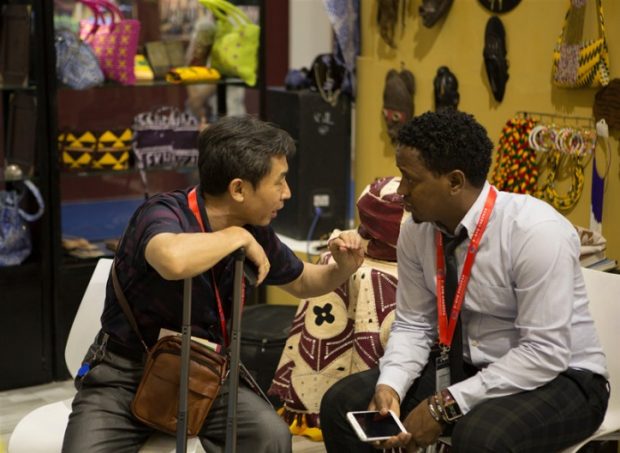
E-commerce signals new future for ties between China, Africa

African companies are exploring new trade models with China based on e-commerce at the first China-Africa Economic and Trade Expo (CAETE), which opened on June 25 in Changsha, capital of Central China’s Hunan Province. Trade between China and African countries has been rising since 2008, and by 2018, China had been the biggest trading partner of the continent for a decade. As bilateral trade grows, e-commerce is emerging as a new way to bring about a more sustainable growth mode.
In May, China’s Alibaba Group signed an agreement with Rwanda to establish an Electronic World Trade Platform (eWTP). Charles Kayonga, ambassador of Rwanda to China, told the Global Times on June 27 that e-commerce platforms including eWTP can stimulate the creativity and productivity of the continent. “E-commerce is not a magic pill that solves every problem,” he said. “It can’t solve Africa’s deficit in its trade with China. To solve trade issues, you need productivity and manufacturing, and e-commerce can stimulate that, by opening up the market for African companies.”
Hannah Ryder, CEO of Development Reimagined, an international development consultancy dedicated to finding new solutions to African development, told the Global Times that e-commerce is “absolutely the future” of trade between China and Africa. The new channel is improving mutual understanding and increasing opportunities on both sides. “A lot of African countries still have no idea about the huge potential of the Chinese market,” Ryder said. “People still have a lot of stereotypes about China and there is a lack of knowledge about what’s going on there.” E-commerce now serves as a connecting platform for sharing information, as more African companies target Chinese consumers and their surging purchasing power.
Maxhosa, a South African luxury clothing brand, is one of the seven companies brought to the first CAETE by Development Reimagined. Ntsika Tyata, its public relations liaison, told the Global Times that the company is looking to take a share of the millions of e-commerce customers through social media. “One thing that really took me by surprise when I first visited China is how prominent WeChat is,” Tyata said. “Everyone is using it, even on the road or on the train. We want to figure out how to sell our products on WeChat effectively, and how to reach more people with our advertisements on WeChat.”
“Even if we only get 1 percent of the e-commerce consumers in China, the volume will be massive,” Tyata said. The company is designing and producing Xhosa-inspired clothing with 33 employees back in South Africa, and it hopes to exercise its appeal to the young generation of consumers of luxury brands in China very soon.
(Global Times)


